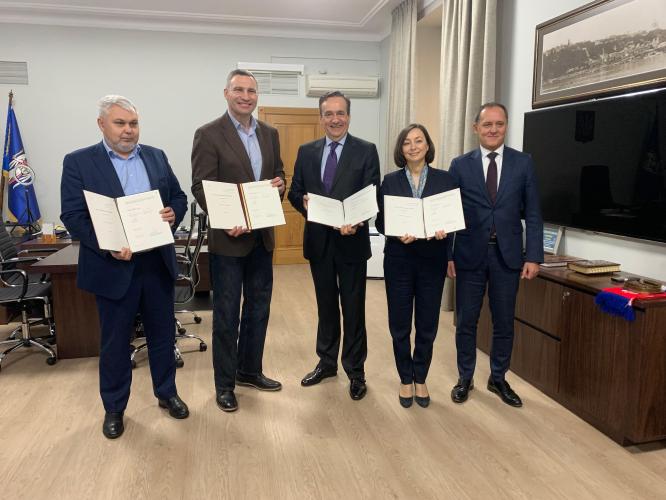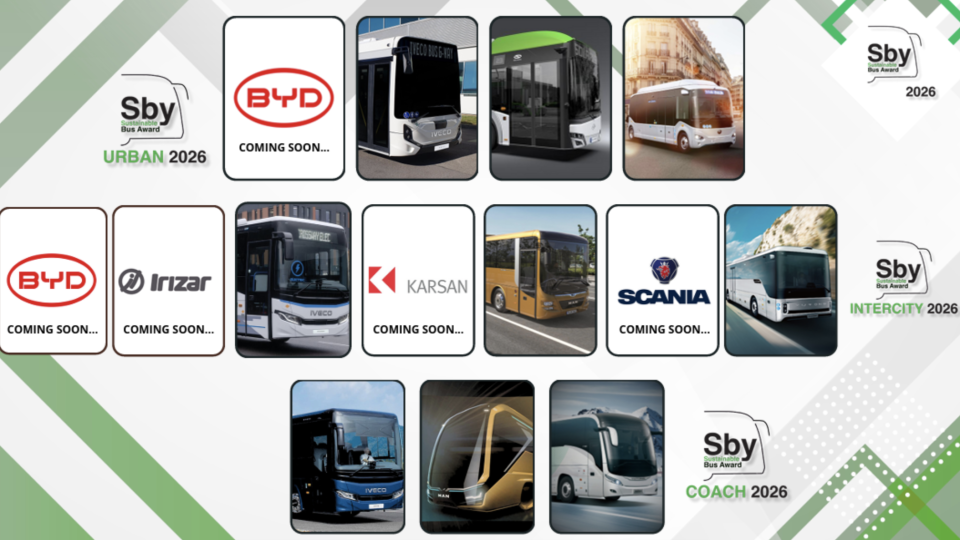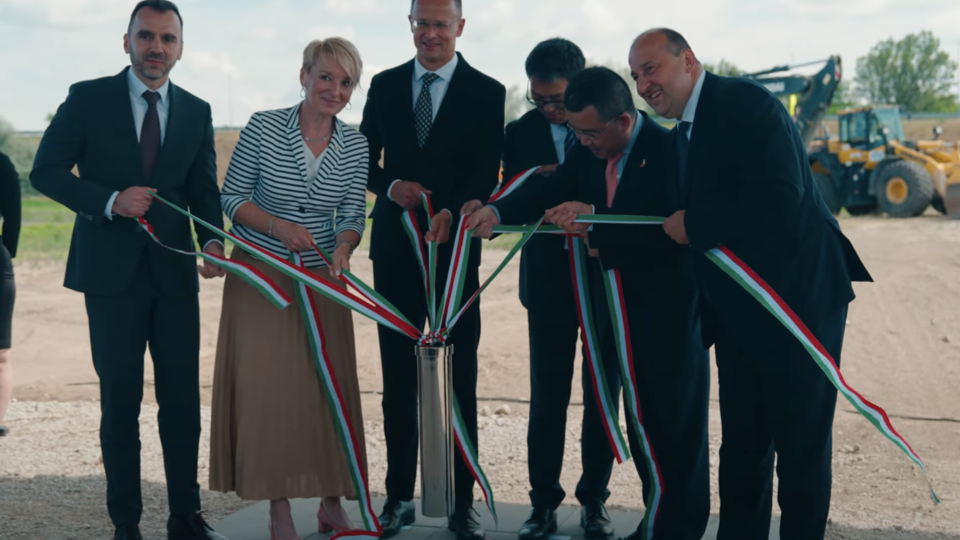European Investment Bank provides a €100 million loan to renew trolleybus and metro fleets in Kyiv (Ukraine)
The European Investment Bank (EIB), the bank of the European Union, and Kyiv Mayor Vitali Klitschko have signed a €100 million loan agreement to renew the city’s trolleybus and metro fleets. The EIB’s financing will increase the availability and improve the quality of sustainable urban public transport in Kyiv, the capital and largest city of […]

The European Investment Bank (EIB), the bank of the European Union, and Kyiv Mayor Vitali Klitschko have signed a €100 million loan agreement to renew the city’s trolleybus and metro fleets. The EIB’s financing will increase the availability and improve the quality of sustainable urban public transport in Kyiv, the capital and largest city of Ukraine with a population of around three million.
This is the first sub-sovereign loan provided by the EIB in Ukraine that is offered on a standalone basis to a municipality without the government’s participation, EIB points out. The project will be implemented by the Kyiv City State Administration, supported by the communal enterprises Kyivpastrans and Kyivskiy Metropoliten. Today, the EIB is one of the largest investors in Ukraine with signed projects of more than €7 billion.
New trolleybuses and metro coaches for Kyiv
The project consists of investment in trolleybuses and metro coaches. It will support the sustainable development of urban mobility by financing electric modes of public transport, which are more environmentally-friendly and energy-efficient. This will reduce reliance on private cars and the associated negative impact on the climate and air quality in Kyiv. Consequently, the project will contribute to climate change mitigation and help bring Ukraine closer to implementation of the European Green Deal.

The project is also expected to be further financed by technical assistance grant contributions amounting to around €3 million to support the preparation of the project and the tender documentation and procurement process. On 1 December 2021, the Eastern Partnership Technical Assistance Trust Fund provided a €480 000 grant to support the project. The EIB is also in discussions with the multi-donor Eastern Europe Energy Efficiency and Environment Partnership for a further technical assistance package in support of the Kyiv City Urban Electric Transport project. That project is being co-financed by the European Bank for Reconstruction and Development on a parallel financing basis.
Kyiv transition to more sustainable transport system
Kyiv Mayor Vitali Klitschko said: “The EIB loan funding for the project is an opportunity for Kyiv to raise resources to purchase new modern trolleybuses and metro coaches and expand the electric transport network. Being the first municipality in Ukraine to receive sub-sovereign financing means a lot to us. We are grateful to the European Union and its bank, the European Investment Bank, for its support and trust. The new electric vehicles will bring many benefits for the inhabitants and guests of the capital and will also facilitate Kyiv’s transition to becoming a more sustainable and eco-friendly city. Last but not least, the new vehicles will reduce operating costs for the city.”
Jean-Erik de Zagon, Head of the EIB Resident Representation in Ukraine, said: “The EIB is proud to be able to contribute to the upgrade of urban electric transport in Kyiv, Ukraine’s capital and largest city. It will make public transport more competitive, reliable and safe. It will also enhance the quality of passenger services, so providing more affordable, accessible and comfortable transportation for just under three million residents. As the EU climate bank, we believe that developing an efficient system of electric public transport is integral to combating air pollution and increasing Ukraine’s contribution to global climate action.”
Ambassador Matti Maasikas, Head of the EU Delegation to Ukraine said: “Urban mobility and modern public transport are high on the agenda of the European Union. We believe that this investment by the European Investment Bank will help Kyiv promote a shift to more efficient and eco-friendly public transport, which is key to the sustainable development of the city, as well as providing safe, comfortable and inclusive transportation of high quality for Kyiv’s citizens. The European Union is committed to supporting green growth in Kyiv in line with the spirit of the European Green Deal. Green, clean and sustainable transportation will definitely reduce the environmental impact of daily travel.”









